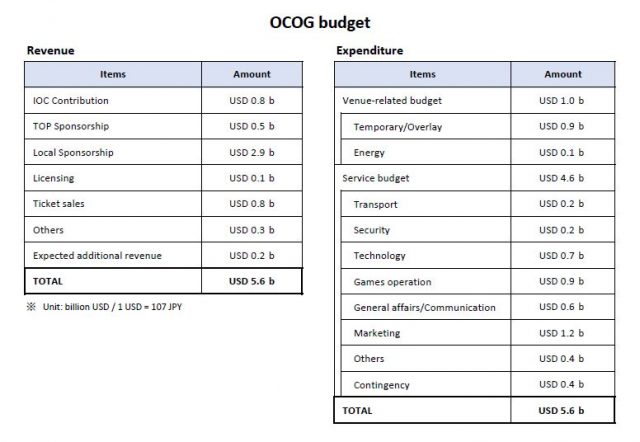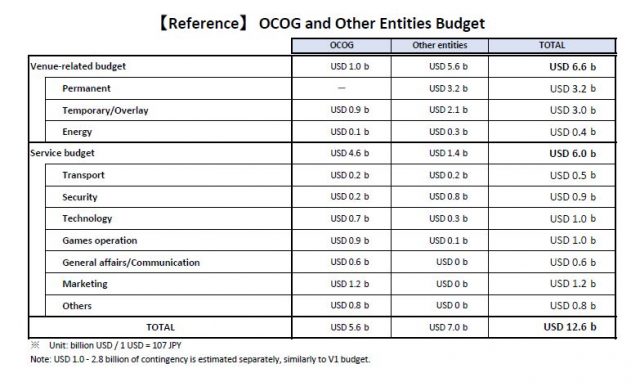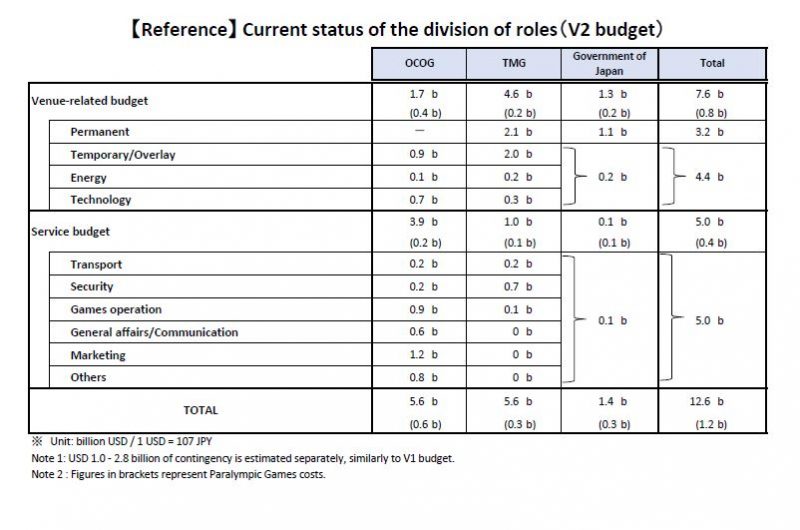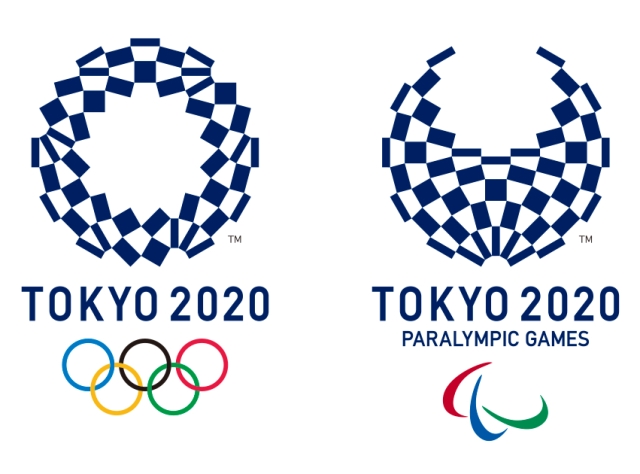The Tokyo Organising Committee of the Olympic and Paralympic Games (Tokyo 2020) today unveiled an updated overall budget for the Tokyo 2020 Games showing a significant reduction in costs.
The updated overall Games budget now totals USD 12.6 billion (JPY 1.35 trillion), a reduction of USD 1.4 billion (JPY 150 billion) compared to version one of the budget, and USD 0.3 billion (JPY 35 billion) less than the
interim figure indicated in the “Overall Division of Roles and Allocation of Costs” agreement reached in May 2017 between Tokyo 2020, the Tokyo Metropolitan Government (TMG), the Japanese Government and local governments of cities and prefectures hosting events.
As before, the budget comprises two main elements– the “OCOG” budget, which is the responsibility of Tokyo 2020, and the “Other Entities” budget, covering expenditure by TMG and the Japanese Government. The latter includes investment in sporting facilities and other social infrastructure aligned with Tokyo’s hosting of the Games which will continue to benefit the city well beyond 2020.
The OCOG budget now stands at USD 5.6 billion (JPY 600 billion) and the Other Entities budget now totals USD 7.0 billion (JPY 750 billion). These savings reflect sustained efforts by all key delivery partners to avoid recourse to
public funds. Going forward, Tokyo 2020 will continue to seek further cost reductions, particularly in the areas of
event operations, transport, accommodation, and security.
In version two of the budget, forecasted OCOG revenues have increased by USD 0.9 billion (JPY 100 billion) thanks to record new sponsorship revenue of USD 2.9 billion (JPY 310 billion). Costs in the OCOG budget are expected to be covered without recourse to public funding as a result of contributions from the IOC, corporate sponsorship, ticket sales, licensing revenues and others.

Tokyo 2020 will continue to look at ways of securing the additional USD 0.2 billion in revenue required to achieve budget balance.

Compared with version one of the OCOG budget, expenditure in version two is forecasted to increase by USD 0.9 billion (JPY 100 billion), of which USD 0.2 billion (JPY 20 billion) is venue- related and USD
0.7 billion (JPY 80 billion) covers services.

The venue-related budget has been increased to USD 1.0 billion (JPY 110 billion), based on the agreement made in May between the key delivery partners. In this, Tokyo 2020 took on responsibility for costs of temporary facilities and overlay of Japanese national or private venues. Nonetheless, Tokyo 2020 has managed to reduce the costs through the adoption of Condition and Value Engineering measures and by reviewing the cost of materials.
Tokyo 2020 has also managed to achieve various efficiencies in the service budget by reviewing and integrating information systems and by revising specifications for accommodation of the members of the Olympic and Paralympic Families. Meanwhile, the overall service budget has increased by USD 0.7 billion (JPY 80 billion) compared to version one due to expenditure linked with increased sponsorship and other increases including the cost of bus transportation, which was previously agreed in the “Overall Division of Roles and Allocation of Costs.” Budgets focusing on just the hosting of events tell only part of the story; there is likely to be a broader positive impact on the Japanese economy resulting from Tokyo’s hosting of the 2020 Games.
A report by TMG published in 2017 assessed the likely impact at USD 300 billion (JPY 32 trillion). Tokyo 2020 remains on track to deliver an unforgettable experience for athletes and fans alike. Together with its delivery partners, Tokyo 2020 will look into further cost-reduction measures to help deliver a sustainable Olympic and Paralympic Games, and will continue to make efforts to ensure that investments in the Games will help bring positive societal change.
